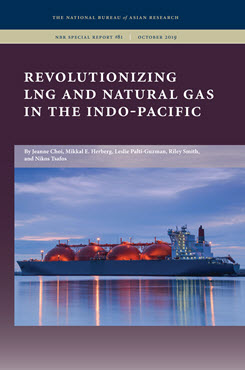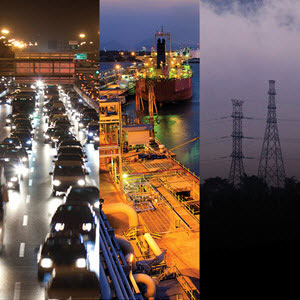Advancing Gas Market Reforms in the Indo-Pacific
Key Issues for Southeast Asia
This essay examines several obstacles to the development of liquefied natural gas (LNG) markets in Southeast Asia and proposes recommendations for addressing these challenges.
Executive Summary
MAIN ARGUMENT
LNG demand in Southeast Asia is projected to be on an upward trend. In just over a decade, by 2030, demand in the countries composing the Association of Southeast Asian Nations (ASEAN) is expected to increase over 400%, reaching a level that is between approximately one-third and two-thirds of the demand in China by that time. A combination of three factors is crucial to Southeast Asia meeting this projected demand for LNG: accelerating the buildout of natural gas infrastructure, incentivizing new exploration and development of natural gas, and building the political will to overcome obstacles posed by the realities of the market. The experiences of Vietnam, Indonesia, and the Philippines, respectively, in developing their natural gas markets serve as examples for each of these three factors, with the first two representing obstacles to market development and the third presenting a possible template for fostering market development.
POLICY IMPLICATIONS
- An alternative to costly permanent LNG import terminals is the use of floating storage regasification units, the operational costs of which are only a fraction of the costs of LNG import terminals.
- Mechanisms that improve currency convertibility for large projects would improve these projects’ bankability and increase their attractiveness to U.S. companies.
- Due to the urgent need for energy and power supply in Southeast Asia, a model project development structure with a standardized contractual framework would help accelerate the necessary infrastructure buildout. Discussions on the shared principles of such a model could start in the relevant energy-focused bodies of the ASEAN Secretariat.
- As the U.S. moves forward with refining and implementing the Asia Enhancing Development and Growth through Energy (EDGE) initiative, it should look for opportunities to work with Southeast Asian countries to address some of these obstacles to natural gas market development.
Riley Smith is Director for Mainland Southeast Asia, ASEAN, and Energy at the US-ASEAN Business Council.



